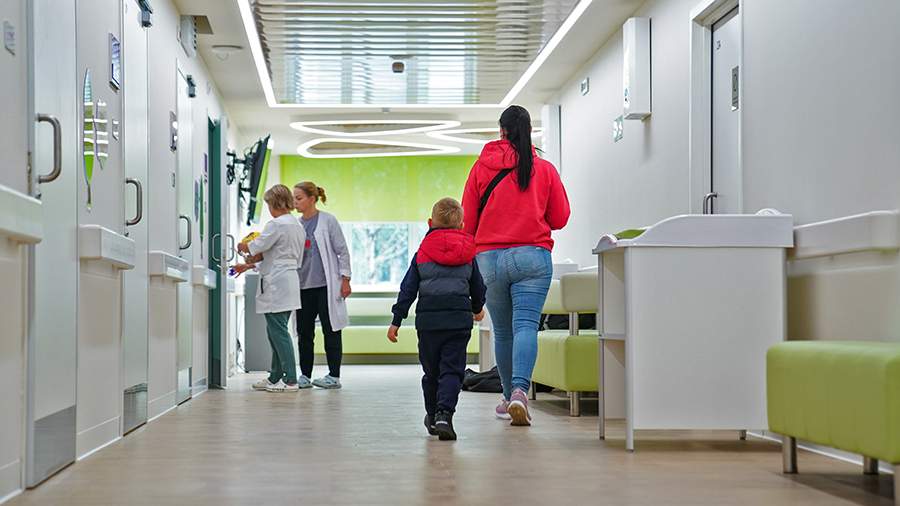A psychotherapist told about ways to find a common language with a child

It is important to know what is going on in a child's life and to understand each other. Sergey Martynov, a psychotherapist, founder of the International Institute of Psychosomatic Health, and a teacher of the CPT course, told Izvestia on December 8 how to find a common language with your child.
"An adolescent possesses all the intellectual resources inherent in adults. His abilities to argue, form his own position and satisfy needs are no less developed than those of a mature person. The adolescent needs to justify why he should obey adults and why elders should evoke authority in him. When his motivation shifts towards satisfying his own interests without the intervention of adults, he may lose emotional connection with them," the expert noted.
According to him, it is possible to restore such relationships only through the establishment of emotional contact. At times when the child avoids communication, it is necessary to find out what is going on in his life.
According to the psychotherapist, when a teenager refers to the workload in studies or other things to avoid communication with parents, it is important to consider three possible reasons. First, the child may be an introvert who is really passionate about studying and prefers it to socializing with adults. Second, he may be freeing up time to satisfy his gadget addiction. Third, the child may be immersed in less productive activities, such as social networking, instead of spending time with parents and their environment.
Martynov emphasized that understanding what is actually going on in a child's life is key. It is important to establish a rapport that will allow discussing what is going on and finding out the true reasons for the teen's behavior.
"Some behavioral rules can be used to improve interaction. For example, if a child is studying on the computer, it is advisable that this happens in a shared space where parents can see what they are doing. This will help create an atmosphere of trust and openness," the expert said.
According to Martynov, the relationship between parents and children is the basis of emotional well-being and development. A break in this relationship leads to the fact that the child will lose the opportunity to discuss his problems with his parents, and in search of satisfaction of his needs may fall into destructive communities. According to the psychotherapist, sometimes parents can lose touch with their child, experiencing resentment or anger that overshadows their ability to communicate, and it takes time to re-establish contact.
"This is where it's important to learn to self-regulate your emotions so that you don't pass on your inner feelings to your child. The restoration of the relationship must be gentle and take into account the actual needs of the child, which change depending on their age," the psychotherapist emphasized.
Martynov explained: in order to establish a relationship, parents should understand the leading needs of the child at each age. For example, for young children, the main need is to play. Parents can involve the child in role-playing and sports, which will help strengthen the emotional bond.
At the same time, for teenagers, socializing with peers and understanding their hierarchy in a social group is important. Teens actively seek information that explains the intricacies of relating to others, and this is where parents can be valuable sources of knowledge. Discussing topics such as leadership, expressing feelings for the opposite sex and dealing with bullying will make parents valuable and interesting interlocutors for the teenager, the expert says.
"One should realize that for a teenager, his social life comes first, not communication with his parents. Parents should accept this and be ready to support and help sort out difficult situations. The relationship can be more or less emotional depending on how close the parents are willing to get to topics that are important to the child," the therapist added.
By creating an atmosphere of trust and interest, parents can not only restore lost bonds, but also strengthen them. At the same time, there is a fine line between the authority of a parent and a friendly relationship with the child. It is important to maintain a hierarchy while remaining friendly and open.
"The adult must remain the parent - the bearer of values that the adolescent will be able to redefine as they go through their own trials. This applies to moral, attitudinal, religious, and vocational choices. For their child, a parent can remain in the role of a mentor who helps them in difficult moments," Martynov emphasized.
According to him, to establish a friendly contact with a teenager, you can use simple but effective tools. For example, offer to watch a movie together that might have been interesting to the child, and then discuss it together - this can be a great basis for discussion and rapprochement.
You can also try to remember what was important to the parent at the child's age and share it with the child, talk about your experiences, how you interacted with peers, how you coped with difficulties or experienced first love. This kind of candid conversation can spark interest and trust in a child.
"However, it is important to remember that your child is an individual with unique experiences and surroundings. His or her life and social circumstances are different from yours. Therefore, when sharing your experiences, try to avoid an admonishing tone. Approach it as an exchange of experience, in which his experience is also interesting to you," the expert advised.
Earlier, on November 24, "Izvestia" got acquainted with the results of a survey conducted by Ozon experts for Mother's Day. Thus, more than 60% of surveyed mothers in Russia named psychological stability and self-confidence as the most important skills for the future adult life of the child.
Переведено сервисом «Яндекс Переводчик»
